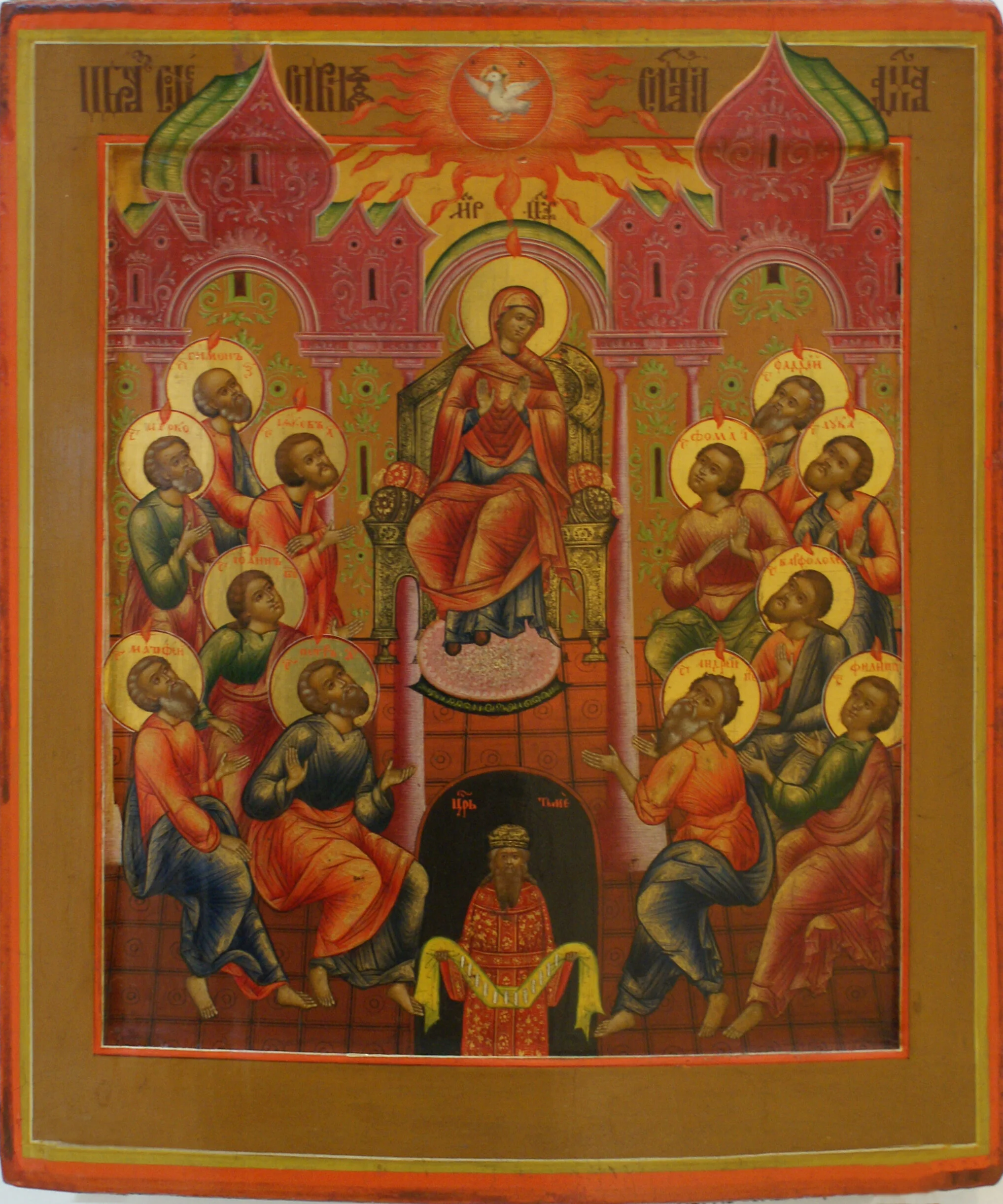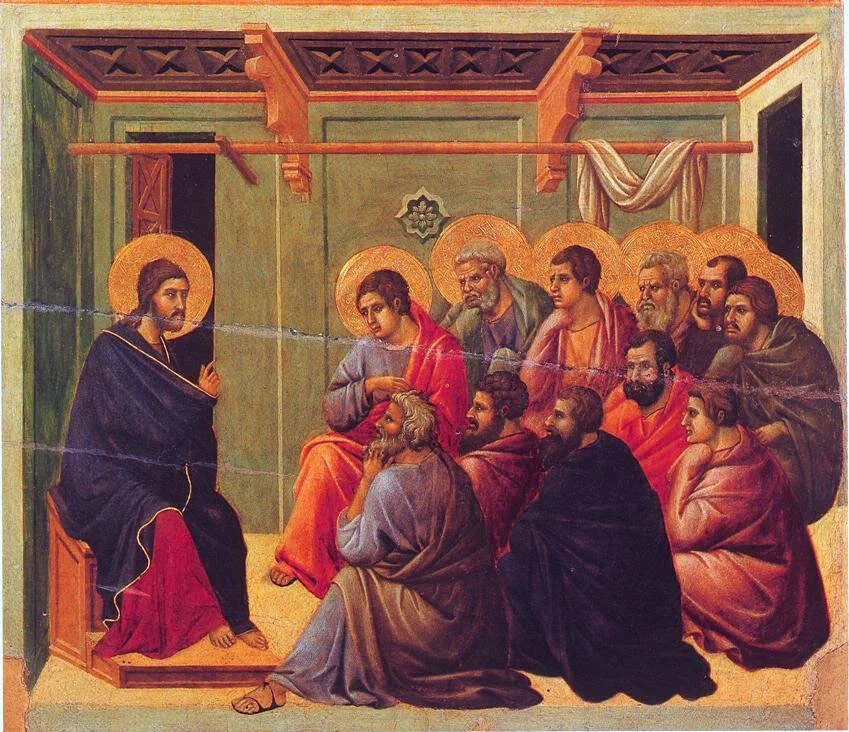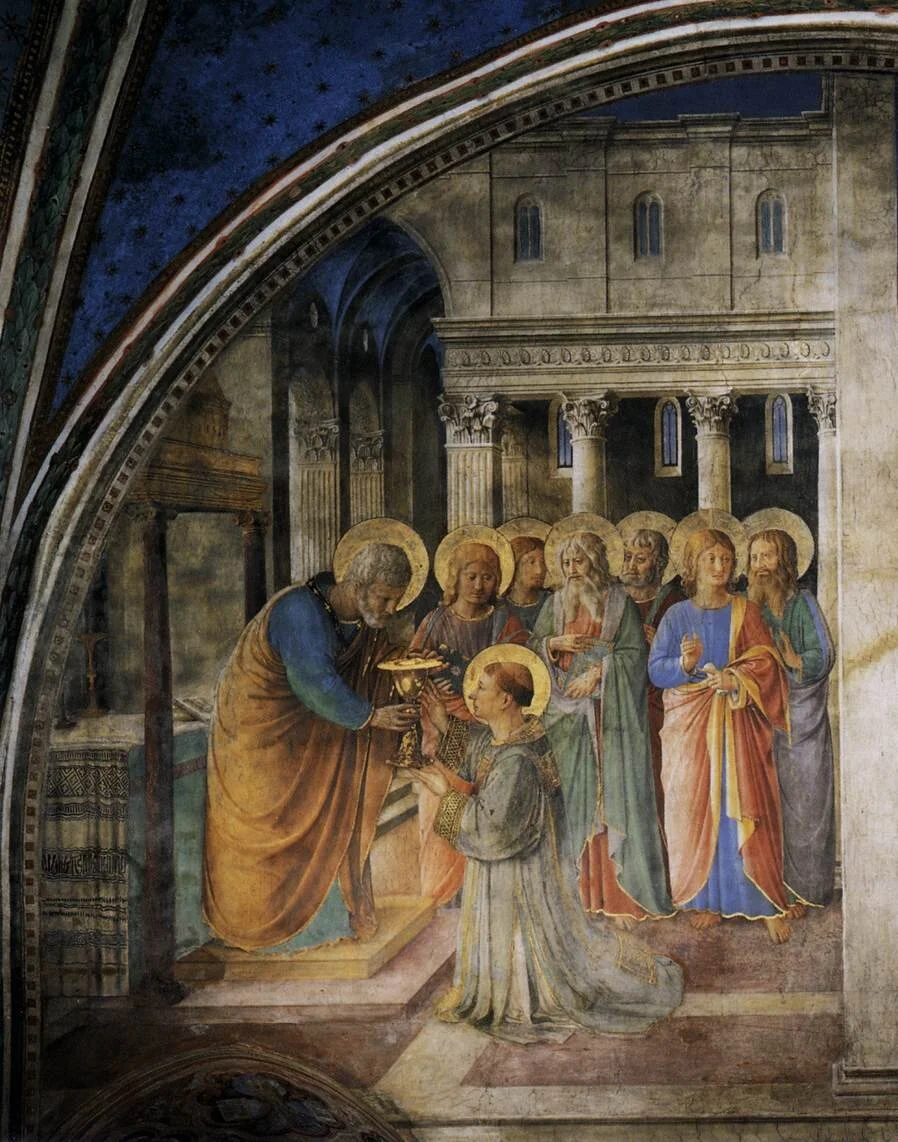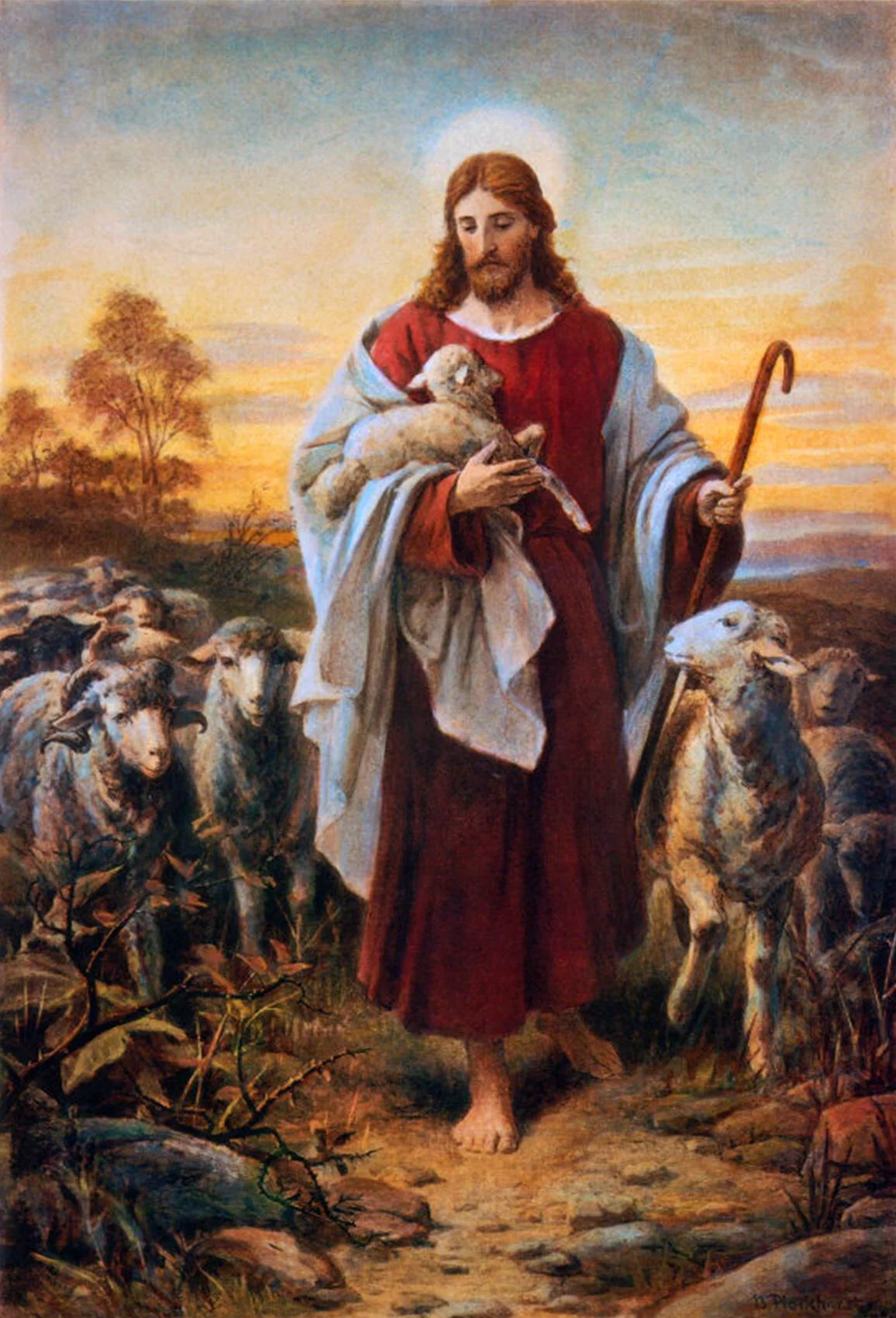Dominica IV Paschae A
3 May 2020
Good Shepherd Sunday
The Fourth Sunday of Easter is typically called “Good Shepherd Sunday.” Yesterday the Church observed the feast day of one great shepherd, the feast of the bishop St. Athanasius who lived in the 300s. St. Athanasius was one of the great bishops from the earliest centuries of faith life in the Catholic Church. At the age of only twenty-one he had already written a great work titled “On the Incarnation,” expounding on the truth that the Second Person of the Blessed Trinity, the Eternal Son of God, had condescended and lowered Himself to take on flesh in the womb of Blessed Mary and so come to us as God incarnate, God in our flesh.
I want to focus our attention on one implication of the mystery of the Incarnation that St. Athanasius explained and defended, and then apply that to our time, especially in view of a hoped-for return to some greater normalcy in our sacramental life. Listen to St. Athanasius’ words, “The Word of God, incorporeal, incorruptible and immaterial, entered our world. Yet it was not as if he had been remote from it up to that time. For there is no part of the world that was ever without his presence; together with his Father, he continually filled all things and places. Out of his loving-kindness for us he came to us, and we see this in the way he revealed himself openly to us. Taking pity on mankind’s weakness, and moved by our corruption, he could not stand aside and see death have the mastery over us; he did not want creation to perish and his Father’s work in fashioning man to be in vain” (On the Incarnation, Office of Readings, May 2). One implication of the Incarnation, the truth that the Eternal Son of God took on our flesh in the womb of Blessed Mary, is that God desired to be and came close to us. He came like one of us in all things but sin. He came within our very flesh and our frame to be near to us.
This has an application for the practice of our faith life as Catholics. You see, God is not to be viewed simply as a concept. His interaction with us is not only spiritual but direct, personal, and physical. He is incarnate. He comes near to us. And so, His grace and power and blessing are enfleshed too, here and now. We are meant to have a relationship with God that is personal and direct. I point this out because I wonder about a possible ramification of this time of quarantine. What will happen when we begin to return to normal? Will we find that some of our Catholic brothers and sisters, perhaps not well-formed, will have become too accustomed to live stream Masses? Too accustomed to the illusion of participating in Mass through a camera? Such practice for us is permitted now because there is little more we can do. And to be clear, that’s okay for now. But, when we can do more and live more normally, will we find that some have disappeared somewhere beyond the camera? It’s a different matter for a Protestant brother or sister, especially who attends a megachurch, to return to “normal” where the normal pattern may well be watching a pastor on a TV screen. But what should return to “normal” look like for a Catholic? Please God all of our brothers and sisters in the Catholic fold will return, but we need to prepare ourselves to be true Catholics and witnesses to them, to be St. Athanasius’ to them, to proclaim the truth clearly and convincingly as he did that God has come near in the Incarnation and that no artificial distance, or the illusion of digital proximity, can suffice for an authentic life with our Good Shepherd. We need to also prepare ourselves to be witnesses who bring non-Catholics nearer and into the fold.
What are the lessons of the Incarnation? Jesus, the Son of God in the flesh, is the one who comes near such that the woman with the hemorrhage can reach out and grasp his cloak. This is the God who spits on the ground, making mud with the dirt, and smears it on the blind man’s eyes to heal him. This is the God who desires proximity and direct, personal contact such that he confronts lack of belief by demanding, put your finger in the nail marks and place your hand in my side, and believe. God is not merely and cannot remain merely a concept. He is to be encountered in a direct and personal way. Through a video lens or on a screen is not the norm and will not suffice under normal conditions. People experience God in many and varied ways, to be sure. By His power He is and can be present spiritually with us and, as we say, in our hearts, especially when we foster prayer life. This is true. But what a greater treasure do we have as Catholics… by the Incarnation God comes near to us directly and personally and this is the heart of a proper sacramental life! How strange it is that we Catholics are sometimes accused of having a distant faith or a faith that is only about rules. That’s only true if you remain distant and close God off to the reality of your life in all its episodes, in all its joys and struggles, and even in the darkness of sins. How strange it would be then, again under normal conditions when we are more free to live a sacramental life, that a Catholic would keep a distance from the Lord. God’s grace in you was begun by direct gift that comes from his personal offering on the Cross and the physical, close, pouring of water for rebirth in the Spirit. That new life is strengthened by the direct and personal anointing of confirmation such that you become a temple of the Holy Spirit and decorated as a solider of Christ. The Lord gives himself most intimately in his resurrected and living flesh in Holy Communion, nourishing you to keep on the path of intimacy with him. Even in our sins, darkness, and struggles he is near to save us. How strange it is then that a Catholic would keep a distance from this merciful work of the incarnate God in confession and choose instead to live at greater distance and to wallow in indignity. God has come near, within our very flesh! He desires and makes intimacy with Him possible.
That God comes in our flesh as the fulfillment of the shepherd King in the line of David gives us an image of God’s closeness. God’s work is continued in our time by the proximity of ordained shepherds in our midst. In the Gospel Jesus proclaims himself to be the gate for the sheep. And he says that whoever enters through the gate (through him) is the shepherd of the sheep. That is an instruction especially to priests that we must have a deep interior life with Jesus. We must live in, and minister through the gate, through Jesus, if we will truly fulfill the calling to be shepherds in his name. And listen to the clear and unique Gospel imagery for how shepherds lead, which will give particular force to the Church’s ancient liturgical practice that you can see and may have noticed here at the altar: From the sheepfold, “the shepherd calls his own sheep by name and leads them out…. he walks ahead of them, and the sheep follow him.” Standing at the sacred altar, ahead of you, but on the same side of the altar with you truly signifies our journey, our procession in this life: a shepherd walks ahead of you to lead, but also on the same side of the altar with you since he is also one of the Lord’s flock. The shepherd seeks to keep his gaze and the gaze of the flock entrusted temporarily to him, not on himself, but on the signs in the cosmos that the Lord is returning to meet us in judgment. Both shepherd and flock have focus for the journey of the spiritual life by focusing on the horizon whence we await the return in glory of our Good Shepherd incarnate still in our flesh!
On this Good Shepherd Sunday I ask your prayers for me, for Fr. Bali, and for Fr. Mejia as we seek to care for and to lead the flock here at our parish. I ask for your prayers for our Archbishop, who has important decisions to announce soon about how and under what conditions we will seek to return to a more normal sacramental life. By extension I ask you to pray for our deacons. And I ask you to pray for future priests and express to God a willingness to welcome and to promote from among your own sons whatever is God’s will, should He call one or more of them to be future priests.




